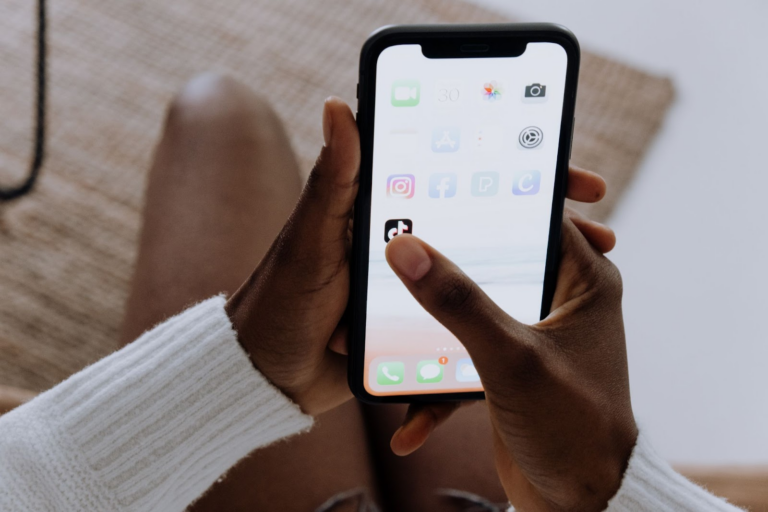TikTok has quickly become one of the most popular social media platforms in the world, with over one billion active users. Its unique algorithm and highly engaging content have made it a favorite among younger generations, who use it for entertainment and to connect with others. However, the app’s popularity has also led to a number of concerns about its security and privacy practices.
For organizations, these security risks are particularly concerning. Companies have a responsibility to protect their sensitive data and ensure the safety of their employees, and allowing access to TikTok on company devices or networks could put both at risk. Employees may unknowingly provide access to confidential company information or be exposed to malware and other security threats through the app.
As a result, many organizations have started to question whether they should allow employees to access TikTok on company devices or networks. Some have even gone so far as to block the app entirely, in order to protect their security and reputation. While this may seem like a drastic step, it is one that many companies and organizations feel is necessary in order to safeguard their sensitive data and ensure the safety of their employees.
TikTok Faces Scrutiny in Congressional Hearing
During a recent congressional hearing, TikTok’s CEO, Shou Zi Chew, faced intense questioning from U.S. lawmakers over the app’s ties to China and the potential security risks posed to American users’ data. The hearing comes as the Biden Administration threatens to ban the app in the U.S. if its Chinese parent company, ByteDance, does not sell its stake in TikTok to an American company.
With 150 million U.S. users, TikTok has become a contentious issue in the U.S.-China rivalry. Concerns about Americans’ data being accessed by the Chinese state, which could pose a national security risk, have fueled the controversy. TikTok has denied accusations of close ties to the Chinese Communist Party and asserts that sensitive user data is kept on U.S. soil and subject to U.S. government audits. Despite these efforts, lawmakers from both sides of the aisle have condemned the app, expressing concern that the Chinese state could use TikTok to covertly influence the American public.
The congressional hearing was expected to focus primarily on national security, but multiple lawmakers also expressed concerns about TikTok’s impact on children. Representative Frank Pallone, a Democrat from New Jersey, highlighted research showing that TikTok’s algorithms recommend videos that create and worsen emotional distress among teens, including videos promoting suicide, self-harm, and eating disorders. Representative Gus Bilirakis of Florida also criticized TikTok for inadequate content moderation, which exposes children to harmful content.
During the hearing, Bilirakis accused TikTok’s CEO, Shou Zi Chew, of promoting technology that leads to death, citing examples of harmful content served to children. In recent months, TikTok has launched several features to provide additional safeguards for younger users, including setting a 60-minute daily time limit for those under 18. However, lawmakers criticized this feature as being too easy for teens to bypass.
Security Concerns Explained
One of the greatest security concerns regarding TikTok is how the app is related to China. Many Western lawmakers and regulators are becoming increasingly concerned about the potential for TikTok and its parent company, ByteDance, to compromise sensitive user data, such as location information, and make it available to the Chinese government. This concern stems from Chinese laws that permit the government to access data from Chinese companies and citizens in a covert manner for intelligence purposes.
TikTok collects data on individuals who post content on the app, as well as those who simply watch it. This data collection is a concern that is shared across various social media platforms, as the data may be used for purposes that individuals are uncomfortable with.
By agreeing to an end-user license agreement (EULA) when using social media apps, individuals are essentially consenting to provide a vast amount of personal data on an ongoing basis.
Data collection occurs through the process of connecting your phone to a server, which results in the server obtaining the Internet Protocol (IP) address. Geolocation can then be determined easily, allowing for the tracking of connected electronic devices and pinpointing the user’s location within close proximity, sometimes even within 10 meters. This level of geolocation data makes it possible for companies to track an individual’s daily routine and movements with relative ease.
Additionally, there are fears that TikTok’s content recommendations could be exploited by China for spreading misinformation. Despite these concerns, TikTok has consistently refuted such allegations and attempted to distance itself from ByteDance.
Should You Block TikTok?
Federal agencies have banned TikTok on government-issued devices. Businesses may want to consider banning the app on their issued devices as well. While TikTok may be a fun and engaging platform for personal use, its potential risks to sensitive business information and data security cannot be ignored. As TikTok collects vast amounts of personal data from its users, including location and device information, it raises concerns about the app’s potential to compromise sensitive business information. By banning TikTok on company-issued devices, businesses can take proactive steps to protect their data and prevent any potential security breaches.
At vTECH io, we provide various cybersecurity solutions to businesses and organizations, including a “cloud application control” feature that can help prevent security threats posed by apps like TikTok. This feature enables businesses to easily block unwanted apps from their networks and devices, including those that may have been flagged by the federal government. By implementing this type of solution, businesses can significantly reduce the risk of data breaches and other cyber threats. To learn more about our cybersecurity solutions, click here and we will partner together to create a more secure environment.

